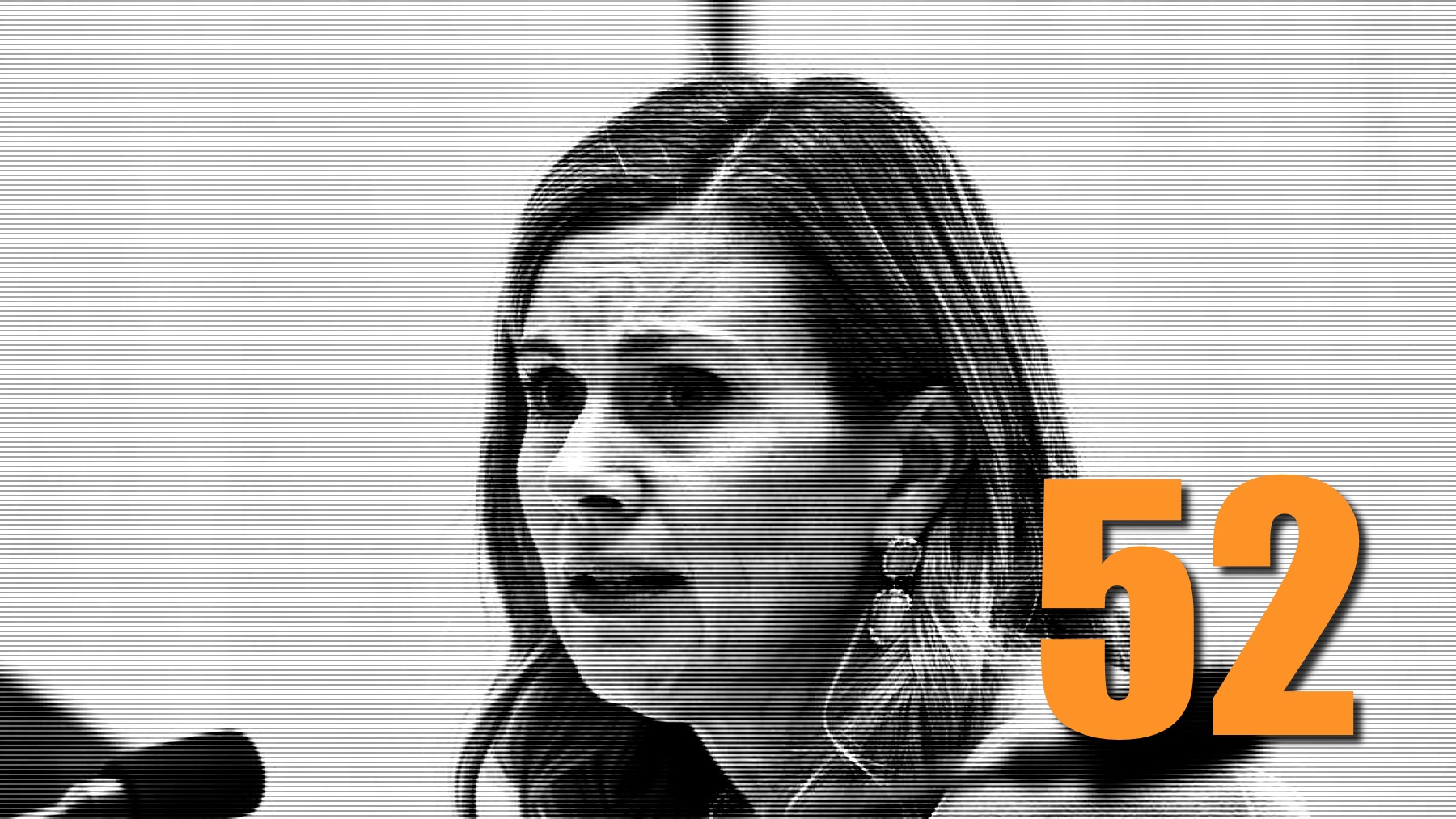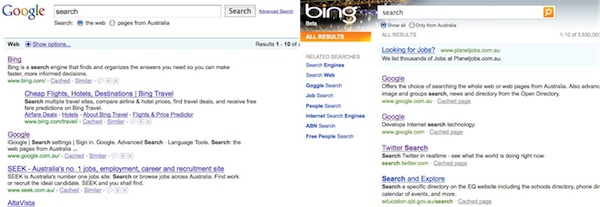There’s more from the eSafety Commissioner this week. Also, a draft of our science and research priorities, cardboard drones, Big Things stamps and coins, and a cryptocurrency bill that looks set to be dumped.
Continue reading “Digital developments from Canberra 52”Weekly Wrap 558: Hosing down a silly idea, starting another Pozible campaign, and more nostalgia
My week of Monday 1 to Sunday 7 February 2021 was exactly as described in the headline, plus some rainy weather — but not as rainy as some previous weeks.
Continue reading “Weekly Wrap 558: Hosing down a silly idea, starting another Pozible campaign, and more nostalgia”Talking life pre-Google on ABC Adelaide
 It’s almost 20 years since Google was founded, and it’s fair to say that at least some of the company’s services have become a part of almost every internet user’s life. But what did we do before Google?
It’s almost 20 years since Google was founded, and it’s fair to say that at least some of the company’s services have become a part of almost every internet user’s life. But what did we do before Google?
There were other search engines, of course, but what about before the web was a thing?
On Friday I discussed this question with ABC Adelaide presenter Peter Goers, along with librarian Nikki White from the National Library of Australia.
Podcast: Play in new window | Download (Duration: 12:48 — 5.9MB)
This audio is ©2018 Australian Broadcasting Corporation.
Vodafone’s dishonest links and the memory hole
 I dealt with a strange request from Vodafone this week. They wanted to fix a broken link in one of my blog posts from four years ago. Not to point it to the material it was citing, but to marketing material for Vodafone’s current iPhone plans.
I dealt with a strange request from Vodafone this week. They wanted to fix a broken link in one of my blog posts from four years ago. Not to point it to the material it was citing, but to marketing material for Vodafone’s current iPhone plans.
I reckon that missed the point of that link from 2008, but read this exchange of email and see if you agree.
Continue reading “Vodafone’s dishonest links and the memory hole”
Google and Bing, sitting in a tree…
This is sweet! Look what happens when you search for the word “search” on the world’s two leading Internet search engines.
Yes, if you Google for “search” the first result is Bing. And if you Google it on Bing, the first result is Google. Now who said these guys were competitors?
Hat-tip to Derek Jenkins (@ozdj), and doubtless others as the meme spreads.
Links for 28 August 2009 through 09 September 2009
Stilgherrian’s links for 28 August 2009 through 09 September 2009, gathered automatically and then forgotten until today:
- REAPER | Audio Production Without Limits: I haven’t encountered this audio/music production tool before. It’s perhaps worth a look.
- Experts look to Australia’s Aborigines for weather help: As it happens, the Aboriginal tribes of the Sydney basin recognised six season, not the European four.
- The 2009 Edelman Trust Barometer: This was published back in March, but it’ll show you how trust in various things has changed over time.
- Salvage Techniques for Wet Electronics | Andy Ihnatko’s Celestial Waste of Bandwidth (BETA): The title says what it is. Yes, I have wet electronics. I dropped my phone in a “moist environment” and it’s now sitting with silica gel and probably never working again. Read this guide now so you know the drill for the future.
- For SEC, tech-savvy fans might be biggest threats to media exclusivity | St Petersburg Times: The US Southeastern Conference of college sports is trying to stop fans communicating about the game in the most stringent restrictions ever seem. A pity they can’t possibly work.
- User driven service bingo | Doc Searls Weblog: A checklist of activities to see whether some web service or other is truly “user driven”. Does this apply to organisations too?
- Electronic Warfare: Airborne electronic attack – a new offensive role for the RAAF | ADM: Someone took me to task for suggesting the RAAF buying F/A-18 Super Hornets was a waste. He suggested the electronic warfare capability of the “Growler” model was a worthwhile addition to Australia’s defence capability.
- Stop Using the Word “We” | Ted Dziuba: A plea for more direct communication within the corporation. Yes please.
- Economics is not a Natural Science by Douglas Rushkoff | Edge: “Some of us analyzing digital culture and its impact on business must reveal economics as the artificial construction it really is. Although it may be subjected to the scientific method and mathematical scrutiny, it is not a natural science; it is game theory, with a set of underlying assumptions that have little to do with anything resembling genetics, neurology, evolution, or natural systems.”
- Impatient CEOs are all of a Twitter, but it doesn’t work like that | The Observer: John Naughton points out a real dilemma: CEOs have to generate profits to a quarterly cycle, but the business benefits of “social media” (or whatever it’s called next month) will take decades to emerge.
- Draft Open Access and Licensing Framework released | In Development: The New Zealand government’s draft policy recommends that government agencies use the most liberal Creative Commons licensing possible.
- Stark realisation: I no longer depend on Google to find stuff | Alex J Campbell: Alex differentiates between “finding” and “locating”, and along the way observes that the changes in the way we do these things has profound implications for businesses trying to get customers online.
- Words for Webstock – Bruce Sterling: Bruce Sterling sees the Future, and it’s banal. Just like today.
- Last Year’s Model: “It’s totally normal to lust after the hottest new geeky gadgets. It’s also cool to put some thought into what we buy, and what we throw away. So this is a place to show the world that a lot of us are choosing to use Last Year’s Model.” Their slogan is “Saving the planet through sheer laziness”, but it’s also a call for a more informed choice about consuming less.
- OSX Timemachine and Samba/Windows share | Hupio’s Weblog: How to use Apple’s OS X 10.5.2 Time Machine backup software with a Linux server, Windows server or Windows network share. It presumably works just as well with later versions.
- The next 100 years | New Statesman: An extract from Stratfor founder George Friedman’s book of the same name. Can you imagine a war between a Japan-Turkey alliance and US-Poland?
- Depression’s Evolutionary Roots | Scientific American: New research seems to indicate that depression isn’t something “broken”, but rather the brain going into an altered state so that “deep rumination” can be uninterrupted, leading to better analysis of a complex problem. If so, doesn’t that mean anti-depressant medications are preventing the problem being solved?
- John Thompson-Mills: John was the producer of Club Escape, the dance music program I presented with Scott Thompson on Triple J back in 1990 or whenever it was. Happy to have stumbled across this.
- CHART OF THE DAY: Actually, Kids Don’t Hate Twitter Anymore! | Silicon Valley Insider: “While Twitter’s user base historically favored older users, people between ages 12-24 have been Twitter’s fastest growing age group of late. And now that age group is actually disproportionately visiting Twitter, according to comScore.”



